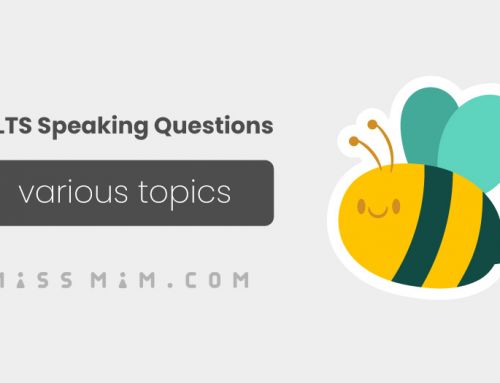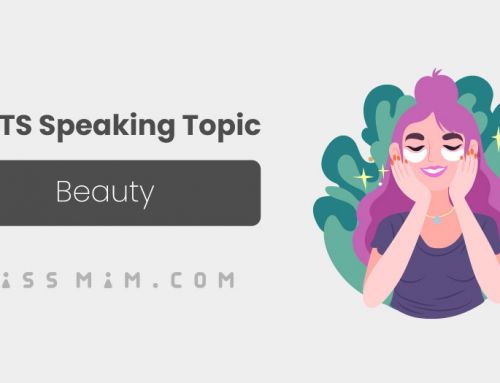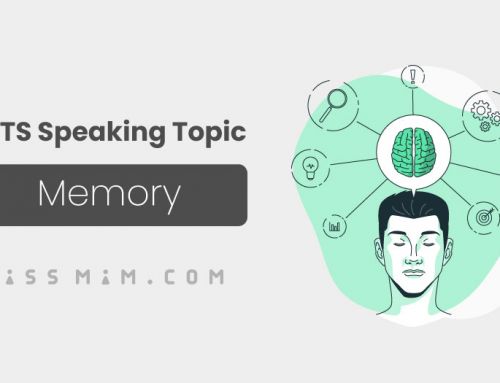این پست راجعبه multilingualism یا تسلط به چند زبان خارجیه.
در بخش اول، درباره زندگی یک multilingual و باورهای غلطی که درباره این افراد وجود داره میخونیم.
کلمات و اصطلاحات این قسمت ممکنه برای زبانآموزای سطح متوسط تازگی داشته باشه؛ معنی اونها رو با درک کلیای که از متن پیدا کردید حدس بزنید و بعد با استفاده از دیکشنری یا گوگل پیداشون کنید.
قسمت دوم این پست، سخنرانی خیلی جالبی هست از سری TED Talks درباره polyglots یا چند زبانهها.
سخنران این ویدیو – که خودش به چندین زبان مسلطه – درباره ۴ رازی که کمک میکنه ‘ژن یادگیری زبان’ در شما هم فعال بشه حرف میزنه.
این قسمت برای زبانآموزای سطح بالاتر از متوسط و کساییه که نمره ۷ و بالاتر رو در آزمون آیلتس میخوان خیلی مفیده.
Is multilingualism exotic?
Adapted from Speakout, Second Edition, Intermediate Level
Grandpa shouts, “Dinner’s ready” in Danish. My mother asks me in English to lay the table. As I do so, I catch the theme tune of the Brazilian soap opera on TV in the living room, where my sister is relaxing. She speaks perfect Portuguese. My father asks her to record the program in his native Spanish, and we take our places at the table. And what’s on the menu? Italian meatballs.
We know we aren’t a normal family. At any moment, you might hear conversations in four different languages, and almost everyone understands everything. But what is normal these days?
My mother is half-Danish, half-English, and my father, who is born in Bolivia, speaks Spanish and Guarani. Because of my mother’s work (she’s now retired), we lived in Brazil, Italy, and Germany, so we picked up three more languages. Now as adults, my sister and I both speak six languages.
Advantages of Multilingualism
Being bilingual, or in our case multilingual, has so many advantages. All the recent research suggests we benefit in many ways: social, cultural, economic, academic, and intellectual. The research has also destroyed some of the persistent myths.
Multilingualism Myth #1
One of the myths is that bilingualism is uncommon as if we bilinguals are like rare, exotic birds. The truth is that around fifty percent of the world’s inhabitants are bilingual. The continents with the most linguistic diversity are Asia and Africa. In Nigeria alone, 500 languages are spoken, in India 400.
Some people believe that you have to learn both languages as a child to be truly bilingual. My sister and I are fortunate in this respect, but we know countless people who have mastered a second language as adults. They may not have such perfect pronunciation as those who acquire their second language as children, but they are still completely fluent and accurate.
Multilingualism Myth #2
Another myth about bilingual concerns identity. Some people think we have split personalities. As kids, my sister and I were often asked “But where are you really from?” Not at all, I am me, the product of many cultures. I can switch languages easily, according to where I am and I’m with, and this seems completely natural to me.
As for the benefits, bilinguals do better on certain tests, are better protected against mental illnesses such as Alzheimer’s, gain insights into other cultures, have access to more of the world’s information, and are in some contexts more employable. Being bilingual has made me who I am, and for that I’m grateful.
What’s the secret to Multilingualism?
I love learning foreign languages. In fact, I love it so much that I like to learn a new language every two years, currently working on my eighth one. When people find that out about me, they always ask me, “How do you do that? What’s your secret?” And to be honest, for many years, my answer would be, “I don’t know. I simply love learning languages.”
But people were never happy with that answer. They wanted to know why they are spending years trying to learn even one language, never achieving fluency, and here I come, learning one language after another.
They wanted to know the secret of polyglots, people who speak a lot of languages. And that made me wonder, too, how do actually other polyglots do it? What do we have in common? And what is it that enables us to learn languages so much faster than other people? I decided to meet other people like me and find that out.
The Secret to Multilingualism
From Ted Talks
▪️ Don’t Fear Your Mistakes
And so I met Benny from Ireland, who told me that his method is to start speaking from day one. He learns a few phrases from a travel phrasebook and goes to meet native speakers and starts having conversations with them right away. He doesn’t mind making even 200 mistakes a day, because that’s how he learns, based on the feedback. And the best thing is, he doesn’t even need to travel a lot today, because you can easily have conversations with native speakers from the comfort of your living room, using websites.
▪️ Get Involved with Others
I also met Lucas from Brazil who had a really interesting method to learn Russian. He simply added a hundred random Russian speakers on Skype as friends, and then he opened a chat window with one of them and wrote “Hi” in Russian. And the person replied, “Hi, how are you?” Lucas copied this and put it into a text window with another person, and the person replied, “I’m fine, thank you, and how are you?” Lucas copied this back to the first person, and in this way, he had two strangers have a conversation with each other without knowing about it.
And then I met polyglots who always start by imitating sounds of the language, and others who always learn the 500 most frequent words of the language, and yet others who always start by reading about the grammar.
If I asked a hundred different polyglots, I heard a hundred different approaches to learning languages. Everybody seems to have a unique way they learn a language, and yet we all come to the same result of speaking several languages fluently.
▪️ The secret to Multilingualism #1: Find ways to enjoy learning
And as I was listening to these polyglots telling me about their methods, it suddenly dawned on me: the one thing we all have in common is that we simply found ways to enjoy the language-learning process. All of these polyglots were talking about language learning as if it was great fun.
You should have seen their faces when they were showing me their colorful grammar charts and their carefully handmade flashcards, and their statistics about learning vocabulary using apps, or even how they love to cook based on recipes in a foreign language. All of them use different methods, but they always make sure it’s something that they personally enjoy.
▪️ Make it a Part of Your Life
I realized that this is actually how I learn languages myself. When I was learning Spanish, I was bored with the text in the textbook. I mean, who wants to read about Jose asking about the directions to the train station. Right? I wanted to read “Harry Potter” instead, because that was my favorite book as a child, and I have read it many times. So I got the Spanish translation of “Harry Potter” and started reading, and sure enough, I didn’t understand almost anything at the beginning, but I kept on reading because I loved the book, and by the end of the book, I was able to follow it almost without any problems.
And the same thing happened when I was learning German. I decided to watch “Friends,” my favorite sitcom, in German, and again, at the beginning, it was all just gibberish. I didn’t know where one word finished and another one started, but I kept on watching every day because it’s “Friends.” I can watch it in any language. I love it so much. And after the second or third season, seriously, the dialogue started to make sense.
▪️ There are no Shortcuts to Multilingualism
I only realized this after meeting other polyglots. We are no geniuses and we have no shortcut to learning languages. We simply found ways how to enjoy the process, how to turn language learning from a boring school subject into a pleasant activity which you don’t mind doing every day. If you don’t like writing words down on paper, you can always type them in an app.
If you don’t like listening to boring textbook material, find interesting content on YouTube or in podcasts for any language. If you’re a more introverted person and you can’t imagine speaking to native speakers right away, you can apply the method of self-talk.
You can talk to yourself in the comfort of your room, describing your plans for the weekend, how your day has been, or even take a random picture from your phone and describe the picture to your imaginary friend. This is how polyglots learn languages, and the best news is, it’s available to anyone who is willing to take the learning into their own hands.
▪️ The secret to Multilingualism #2: Apply trusted methods
First of all, you’ll need effective methods. If you try to memorize a list of words for a test tomorrow, the words will be stored in your short-term memory and you’ll forget them after a few days. If you, however, want to keep words long term, you need to revise them in the course of a few days repeatedly using the so-called spaced repetition.
You can use apps which are based on this system such as Anki or Memrise, or you can write lists of words in a notebook using the Goldlist method, which is also very popular with many polyglots. If you’re not sure which methods are effective and what is available out there; just check out polyglots’ YouTube channels and websites and get inspiration from them. If it works for them, it will most probably work for you too.
▪️ The secret to Multilingualism #3: Make a plan
The third principle to follow is to create a system in your learning. We’re all very busy and no one really has time to learn a language today. But we can create that time if we just plan a bit ahead. Can you wake up 15 minutes earlier than you normally do? That would be the perfect time to revise some vocabulary.
Can you listen to a podcast on your way to work while driving? Well, that would be great to get some listening experience. There are so many things we can do without even planning that extra time; such as listening to podcasts on our way to work or doing our household chores. The important thing is to create a plan in the learning.
“I will practice speaking every Tuesday and Thursday with a friend for 20 minutes. I will listen to a YouTube video while having breakfast.” If you create a system in your learning, you don’t need to find that extra time; because it will become a part of your everyday life.
▪️ The secret to Multilingualism #4: Be Patient
And finally, if you want to learn a language fluently, you need also a bit of patience. It’s not possible to learn a language within two months, but it’s definitely possible to make a visible improvement in two months if you learn in small chunks every day in a way that you enjoy. And there is nothing that motivates us more than our own success.
▪️ The Sense of Achievement Keeps You Moving Forward
I vividly remember the moment when I understood the first joke in German when watching “Friends.” I was so happy and motivated that I just kept on watching that day two more episodes; and as I kept watching, I had more and more of those moments of understanding. These little victories, and step by step, I got to a level where I could use the language freely and fluently to express anything. This is a wonderful feeling. I can’t get enough of that feeling, and that’s why I learn a language every two years.
▪️ Is There Such a Thing as ‘Language Gene’?
Well, there’s one thing I haven’t told you about Benny and Lucas. Benny had 11 years of Irish Gaelic and five years of German at school. He couldn’t speak them at all when graduating. Up to the age of 21, he thought he didn’t have the language gene and he could not speak another language. Then he started to look for his way of learning languages, which was speaking to native speakers and getting feedback from them, and today Benny can easily have a conversation in 10 languages.
Lucas tried to learn English at school for 10 years. He was one of the worst students in the class. His friends even made fun of him and gave him a Russian textbook as a joke because they thought he would never learn that language or any language. And then Lucas started to experiment with methods, looking for his own way to learn; for example, by having Skype chat conversations with strangers. And after just 10 years, Lucas is able to speak 11 languages fluently.
Does that sound like a miracle? Well, I see such miracles every single day. As a language mentor, I help people learn languages by themselves, and I see this every day. People struggle with language learning for five, 10, even 20 years. And then they suddenly take their learning into their own hands, start using materials which they enjoy, more effective methods; or they start tracking their learning so that they can appreciate their own progress; and that’s when suddenly they magically find the language talent that they were missing all their lives.
_______________ Your Turn _______________
Do you think multilingualism is common?
What are your strategies to learn a second language?








ثبت ديدگاه